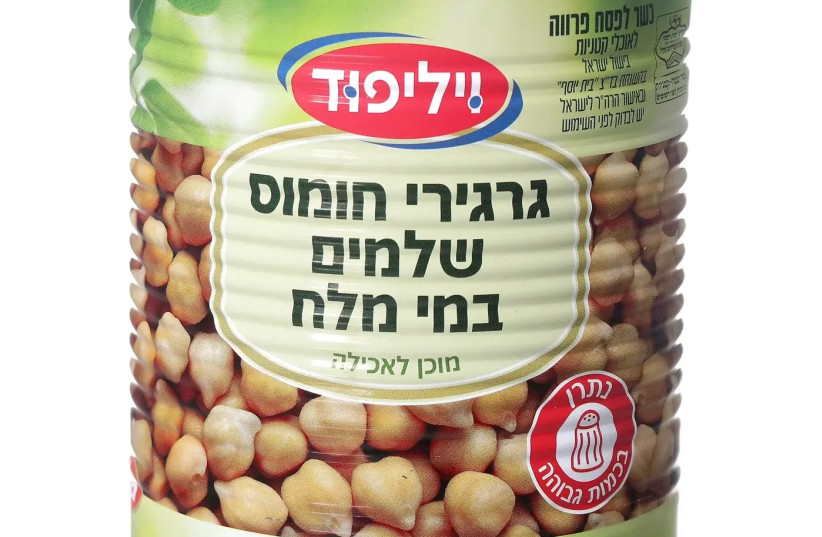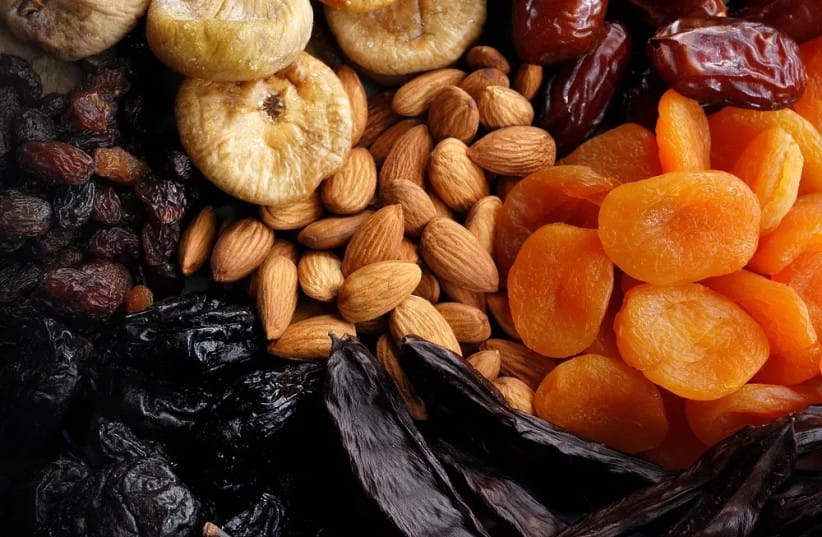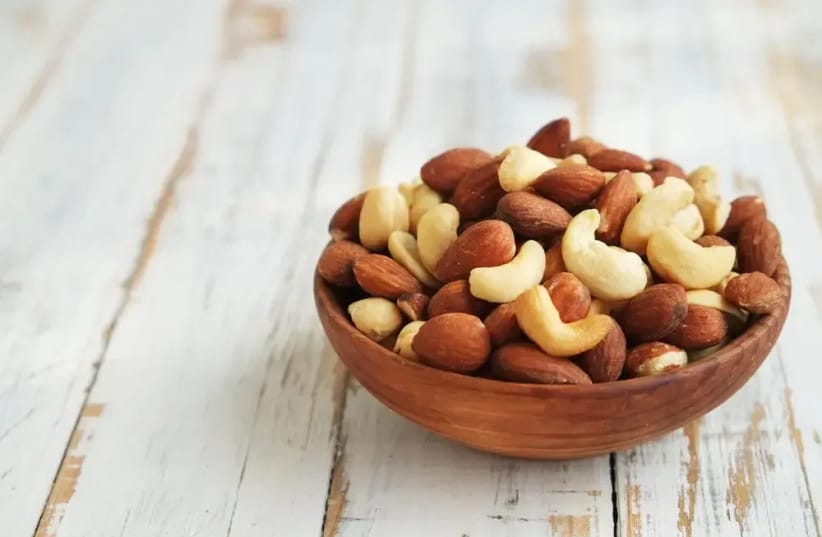Savvy Snacks: Smart Foods to Stock in Your Safe Room and What to Skip

Whether it’s for a few minutes or long hours – when entering a protected space, it’s best to be equipped not only with water and a phone charger but also with smart food: food that doesn’t spoil without refrigeration, doesn’t require preparation, and doesn’t spike blood sugar levels.
The right foods for this situation are those that provide long-lasting satiety, improve mood thanks to tryptophan and serotonin, and contain magnesium and calcium – essential for muscle relaxation and the proper function of the nervous system, especially in moments of stress.
So what should you take to the shelter or safe room – and what is better left out? Here’s everything you need to know, including small tips for those moments when you need to think quickly and act wisely:
Most Important – Water
At least one to two liters per adult. Preferably small bottles that are easy to distribute and carry. Dehydration affects concentration, memory, and the feeling of calm.
Reminder – drinking water improves digestion and helps prevent constipation. Chronic water deficiency can cause medical issues like high blood pressure, asthma, allergies, and kidney stones. Dehydration is the number one cause of migraines and heartburn.
Canned Goods with Protein
Mainly legumes like chickpeas, white beans, lentils, green peas, or a mix of peas and carrots. These aren’t just easy-to-carry-and-open canned goods, but a smart choice that provides important nutritional values, especially in moments of stress or uncertainty.
Unlike canned foods that contain only carbohydrates (like corn), legumes also contain quality plant-based protein that offers long-lasting satiety – without sharply increasing blood sugar levels.

Additionally, legumes are rich in tryptophan – an amino acid the body uses to produce serotonin – the substance that calms us, improves mood, and supports emotional stability.
The combination of complex carbohydrates, protein, and tryptophan makes canned legumes ideal food for hours in a closed space when there’s no access to a hot meal – but you still need to feel full, energized, and emotionally balanced. Worried about the gas issue that might come from eating legumes and doesn’t suit a confined space? Don’t worry – it takes at least five hours from eating legumes before any effect, if at all.
Whole Wheat Pretzels or Crackers
This may sound like a simple, everyday snack, but when chosen correctly – whole wheat pretzels or crackers can be an excellent option for time in the safe room. They’re easy to store, don’t spoil, don’t melt or smear, and are easy to snack on without mess or fuss.
Compared to other snacks with long ingredient lists full of flavor additives, coloring, and fried or trans fats – whole wheat pretzels or crackers usually have a short, simple ingredient list, with whole grains that provide moderate satiety and dietary fiber that helps balance blood sugar.
Dried Fruits and Dates

Natural sugar, dietary fiber, potassium, and more. When the body experiences stress, fatigue, or uncertainty – like during time in a safe room – it looks for quick energy sources and simultaneously needs a nervous system boost and mood support.
This is where dried fruits come into the picture – with undeniable advantages. Dates, raisins, dried apricots, prunes, and even dried pineapple or figs – are not only tasty and accessible but also provide:
• Natural sugar: Helps quickly raise energy levels, without the need for chocolate or processed snacks.
• Dietary fiber: Supports satiety, balances blood sugar levels, and aids digestive function, which can be disrupted in stress situations.
• Potassium: A vital mineral for proper muscle and heart function, also helps balance body fluids.
• Antioxidants: Especially in dark fruits like prunes or raisins, which protect cells and help the body recover from physical and emotional stress.
• Natural sweetness: Satisfies emotional needs for a "treat," without consuming industrial sweets or unhealthy chocolates.
Note: Here too, it’s best to choose dried fruits with no added sugar or preservatives, and to consume in moderation – for example, 2–3 dates or a small handful of raisins – for an energy boost suitable for both kids and adults.
Simple Energy Bars
Preferably those made from whole oats. They can meet the need for satiety without being heavy.
Oats are not just another carbohydrate; they are one of the most important dietary sources of tryptophan, the amino acid used by the body to produce serotonin, the neurotransmitter associated with calmness, emotional balance, and good sleep.
In stressful situations – like staying in a protected space – the body needs more serotonin to cope with stress, and oats can help naturally boost its production. In addition, oats are rich in dietary fiber that promotes long-term satiety and regulates blood sugar levels – which can prevent drops that cause fatigue, irritability, or “energy crashes.”

High-quality energy bars also contain nuts, seeds, almond butter, or dried fruits, which together create a nutritionally richer snack without excess calories or a problematic ingredient list.
If you have at home or can stock up in advance – consider high-quality protein bars as well. These bars (especially if they contain about 17 grams of protein per unit, without added sugar) provide prolonged satiety, similar to a small meal, are suitable for both adults and teens, and require no refrigeration.
These quality snacks can be an excellent solution for long hours without the ability to prepare food – especially if fruits, vegetables, or hot food are no longer available.
Nuts and Almonds
A small handful of natural nuts – like almonds, walnuts, pecans, hazelnuts, or Brazil nuts – can provide a concentrated nutritional boost, perfect for extended time in a confined space or shelter. Nuts contain highly important nutritional components:
• Magnesium: One of the most important minerals during stress; directly supports nervous system regulation, reduces tension and irritability, and maintains a stable mood. Additionally, magnesium is essential for muscle relaxation, including digestive system muscles (which helps prevent stress-related stomach pain) and preventing cramps or muscle fatigue. In times of stress, the body tends to use more magnesium, so it’s important to ensure it’s supplied through food.
• Calcium: Known mainly for its role in bone building, but it’s just as important for proper nervous system and muscle function. Calcium plays a role in nerve signal transmission, muscle movement, and maintaining calmness – especially during tense hours.
Beyond minerals, nuts and almonds also provide essential omega-3 and omega-9 fatty acids, which are linked to proper brain function, improved mood, and reduced inflammation in the body.
These healthy fats also slow the absorption rate of sugar from food – helping to maintain balanced energy levels over time. Add to that strong satiety, much more than simple carbohydrates – and you get a snack that’s not only tasty and accessible but also smart and effective.
However, the quantities should be limited: about 10–15 natural nuts or almonds (not roasted or salted), a portion that offers the health benefits without excess calories.

Dark Chocolate
Not a must – but sometimes that small square is exactly what gives a sense of control, calm, and comfort during stress. High-quality dark chocolate, containing a high percentage of cocoa (70% and up), is not only a treat but also contains active ingredients that support both physical and emotional well-being in stressful situations.
Cocoa is one of the richest sources of natural antioxidants – especially polyphenols and flavonoids, which protect the body’s cells from oxidative stress, inflammation, and neural wear.
These antioxidants also improve blood flow to the brain, helping with alertness, focus, and concentration – exactly when needed. Additionally, cocoa contains components that raise serotonin levels, a neurotransmitter associated with emotional stability and calm, as well as endorphin levels – those “happiness hormones” that calm and reduce pain.
Dark chocolate also contains theobromine, a mild stimulant that can promote gentle alertness, without the jitteriness sometimes caused by caffeine.
Important: Watch for added sugar in most chocolates – when it’s high, it can cause a quick energy rise followed by a sharp drop – increasing fatigue, irritability, and renewed hunger. Therefore, if you have access to dark chocolate without added sugar – that’s the best choice.
Other Low-Sodium Foods
When staying in a closed space with limited water access, excess salt can lead to increased thirst and dryness. So it’s better to choose low-sodium versions or those labeled “no added salt.”
Which Foods Not to Bring to the Safe Room?
• Fried and salty snacks (chips, Bissli, etc.): They increase thirst, don’t provide lasting satiety, and may weaken the body’s immunity.
• Dairy foods that are heat-sensitive and may spoil: In stress and pressure situations, the digestive system becomes more sensitive, and dairy can worsen discomfort, bloating, or nausea – especially without access to a fridge.
It goes without saying, but let’s remind ourselves – you never know how long you'll be in a protected space, and access to electricity or refrigeration isn’t always guaranteed. Prefer ready-to-eat food that requires no special conditions, even if only temporarily.
Wishing us all to get through whatever happens here soon – safely and together.
For Dr. Maya Rosman’s course: How to improve health and lose weight sensibly and reasonably, click here .